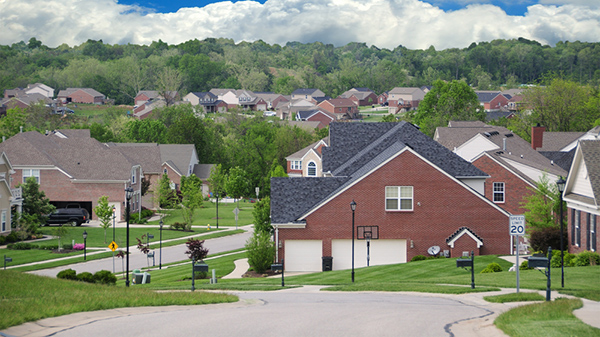Homeowners Associations (HOA) can be a great thing for a neighborhood. These associations charge monthly or annual fees and, in return, perform certain maintenance-related duties. To include caring for neighborhood amenities, and work with the homeowners in the neighborhood to keep all properties looking well-kept and, to varying degrees, consistent in quality of landscaping and outward design. HOAs also play a major role in condominium communities, where multiple parties living in the same building or complex are equally responsible for maintaining all common areas including landscaping, elevators, swimming pools, parking garages, clubhouses, fitness rooms, sidewalks, security gates, and tennis courts.
“HOA fees help maintain the quality of life for the community’s residents and protect property values for all owners,” observed Investopedia personal finance expert Amy Fontinelle. She added, “The more upscale the building and the more amenities it has, the higher the homeowners’ association fees are likely to be.” HOAs also usually retain the right to levy special assessments on homeowners in order to deal with unexpected expenses.
The Power of the HOA
For a real estate investor, the most important aspect of buying in an HOA community is knowing how the presence of that HOA will affect your investing strategy. Often, part of protecting property values includes, to HOA members, preventing some or all homes from being rented instead of sold to owner-occupants. Another, often more immediate and costly issue, comes to light when HOAs come after investors and even mortgage servicers for previous homeowners’ debts.
“Unscrupulous or ill-informed HOAs may add all of the unpaid association dues, late charges, and attorneys’ fees to bills,” warned DSNews reporters Brian Liebo and Kevin Dobie. The two noted that in instances where a home has gone through foreclosure, the HOA generally is the second lien-holder, meaning that the mortgage servicer will be compensated for their losses on the delinquent loan before the HOA. However, once a lender becomes the outright owner of the property, the HOA can demand all dues and assessments going forward. Furthermore, will also be responsible for paying special assessments levied during the lender’s ownership of the property. “Certain associations may…strategically time when they levy special assessments to try to get lenders on the hook,” the two noted, adding, “It may be unclear without court intervention whether the lender is truly obligated to pay.”
Although HOAs are less likely to time special assessments to coincide with a real estate investor’s purchase of a property, the association is likely to come after a new owner for overdue fines, fees, and penalties, which often are massive in the case of foreclosed properties since they tend to fall into disrepair over time. Investors may think they will simply allow these liens to “ride,” but in most states HOAs can encumber properties to the point where they cannot be sold or the profits cannot be collected without first paying off those debts.
Overlooked Due Diligence
Since many real estate investors view HOAs as a nuisance rather than a threat, they may not think to read the HOA covenants. The covenants detail exactly what the HOA permits itself to do in terms of governing the neighborhood and assessing fees and penalties. Furthermore, most people do not realize HOAs often hold priority over just about all other lien-holders and can foreclose on properties that are delinquent on their HOA fees or fines in some cases.
It is imperative you read not just the HOA covenants themselves, but also any relevant state and local legislation, regulations regarding how HOAs collect monies owed and, should the need arise, foreclose on properties. Research local news archives to determine how active a given HOA has been in the past when it comes to special assessments, fines, and foreclosures. For example, most HOAs have the ability to charge daily, compounded late fees if a homeowner fails to pay even minimal violation fines. However, most do not, or work with homeowners to get the violations resolved and the fees paid rather than simply racking up the debt. If an HOA opts for massive collections efforts, generally the homeowner speaks up and the issue makes news. Failure to do your HOA due diligence could not only cost you a great deal of money, you could find yourself out an investment property as well.
























0 Comments